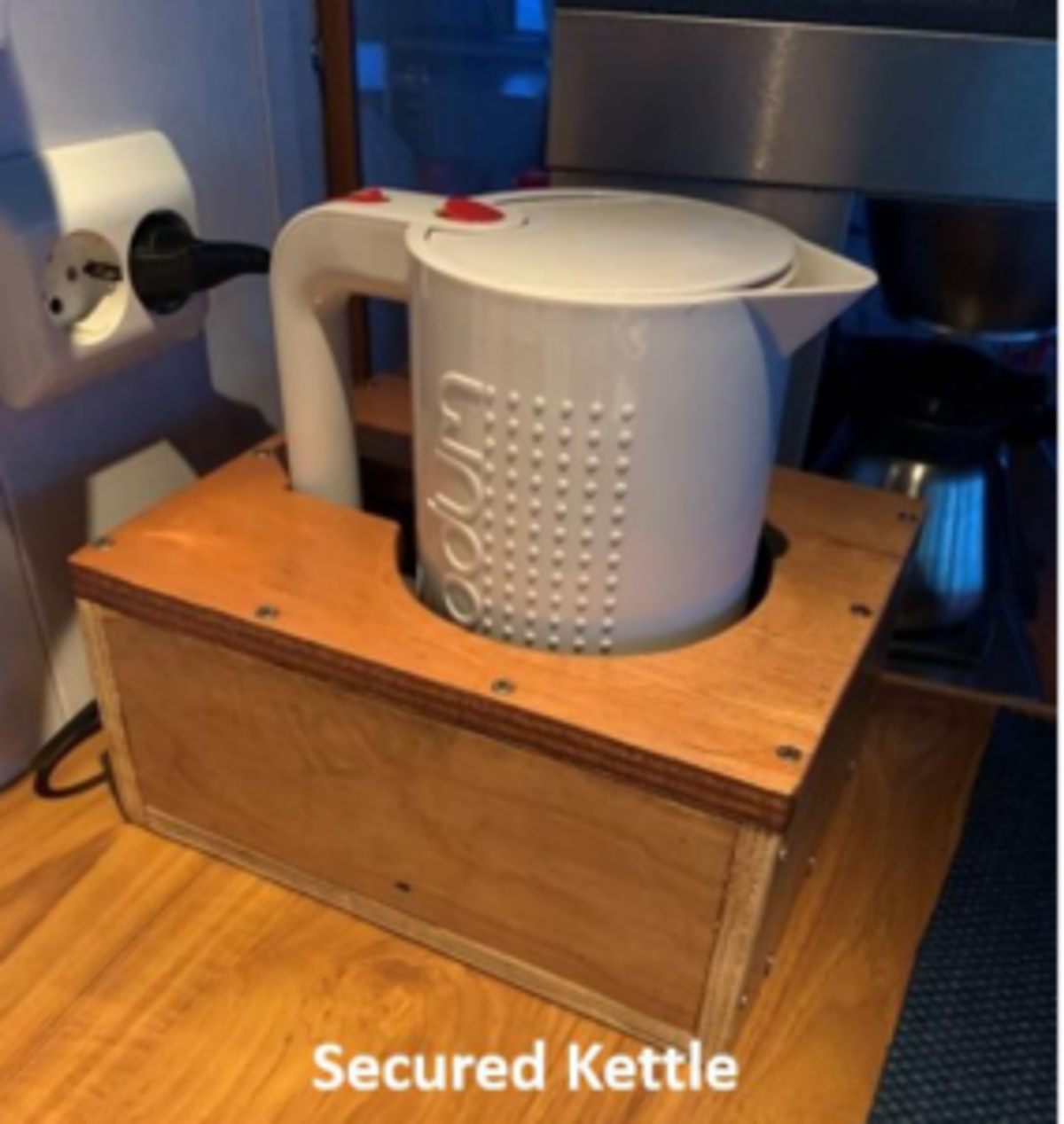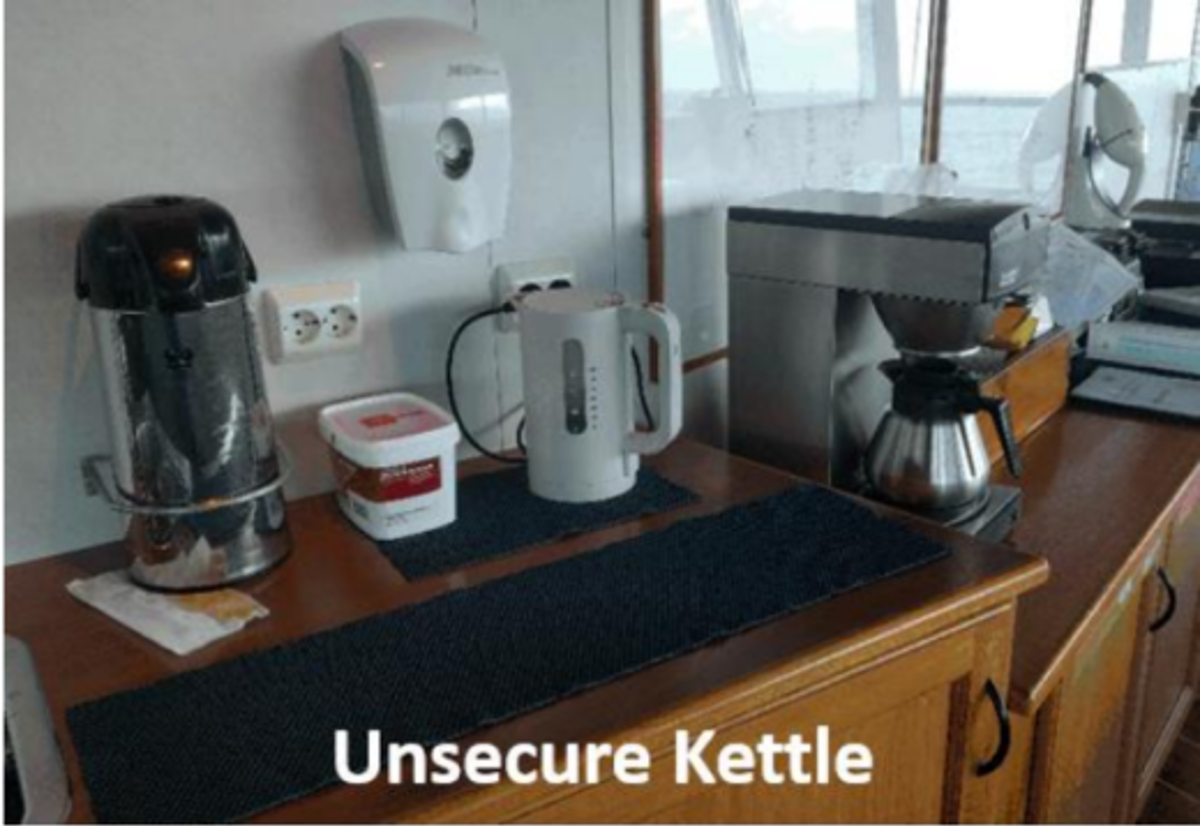Slip on wet surface (Marine Safety Forum)
- Safety Flash
- Published on 3 May 2019
- Generated on 23 January 2026
- IMCA SF 09/19
- 1 minute read
Jump to:
The Marine Safety Forum (MSF) has published Safety Alert 19-02, in which a crew member on bridge duty slipped on a wet area of the deck, landing on his back.
What happened?
The vessel was standing by outside the 500-metre zone, waiting on weather, and was pitching and rolling, when the crew member slipped on spilled water and fell onto his back.
The crew member felt no pain immediately after the incident, travelling home as part of the rotation.
Only later did he visit the local doctor, where it was confirmed symptoms corresponded with damaged ribs, which would heal naturally over time.
What were the causes?
- The spilled water came from an unsecured kettle in the utility area of the bridge.
- The water from the kettle had spilled onto the deck and was not clearly visible to the crew member as it was dark.
What actions were taken?
- The kettle was fitted with a proper securing bracket for adverse weather.
- The crew member visited their doctor at home to be checked out.
- The incident was discussed by both shifts during safety meetings.
The full safety alert can be found on the MSF website.
IMCA Safety Flashes summarise key safety matters and incidents, allowing lessons to be more easily learnt for the benefit of the entire offshore industry.
The effectiveness of the IMCA Safety Flash system depends on the industry sharing information and so avoiding repeat incidents. Incidents are classified according to IOGP's Life Saving Rules.
All information is anonymised or sanitised, as appropriate, and warnings for graphic content included where possible.
IMCA makes every effort to ensure both the accuracy and reliability of the information shared, but is not be liable for any guidance and/or recommendation and/or statement herein contained.
The information contained in this document does not fulfil or replace any individual's or Member's legal, regulatory or other duties or obligations in respect of their operations. Individuals and Members remain solely responsible for the safe, lawful and proper conduct of their operations.
Share your safety incidents with IMCA online. Sign-up to receive Safety Flashes straight to your email.

